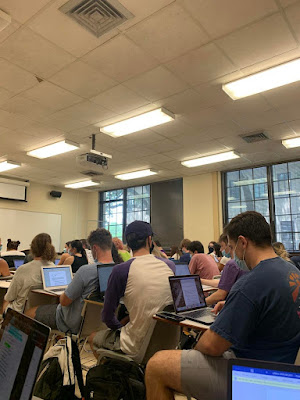Dahn Shaulis posted a provocative commentary yesterday on Higher Education Inquirer. He reported on the recent settlement of Sweet v. Cardona, a class-action lawsuit accusing the U.S. Department of Education of mishandling borrower defense claims.
In essence, the plaintiffs claimed they took out federal student loans to attend schools that misrepresented their offerings or violated various state laws. As Shaulis pointed out, nearly all the schools affected by the lawsuit are for-profit colleges.
Under the settlement terms, DOE will cancel federal student-loan debt owed by 200,000 borrowers. The cost: about $6 billion. This is in addition to the $ 7.9 billion in loan relief to 690,000 students under the terms of earlier borrower-defense settlements.
Fourteen billion dollars in canceled loans owed by 890,000 students: that's a lot of misconduct. Which schools have been named by students filing borrower defense claims?
DOE attached an appendix to its announcement of the Sweet litigation listing more than 150 schools. The list of accused malefactors--almost all for-profit institutions--includes a for-profit law school and a for-profit Caribbean medical school.
As we might expect, the word has gotten out among student borrowers that President Biden's DOE is much more receptive to borrower defense claims than President Trump's callous crew. As Mr. Shaulis reported, there are now 750,000 pending borrower defense claims, and they keep rolling in at the rate of 16,000 a month.
I'm all in favor of DOE's generosity toward students who took out federal loans to attend for-profit institutions and didn't get their money's worth. I have no sympathy for the for-profit colleges, many of which are owned by private equity funds that don't give a flip about the quality of education their institutions deliver.
Nevertheless, it is not feasible for DOE to continue entering into large borrower-defense settlements unless it cracks down on the chief offender--the for-profit college industry.
Basically, DOE is behaving like a wealthy parent who repeatedly pays the damages for a profligate son's mayhem without demanding that the kid stop misbehaving.




